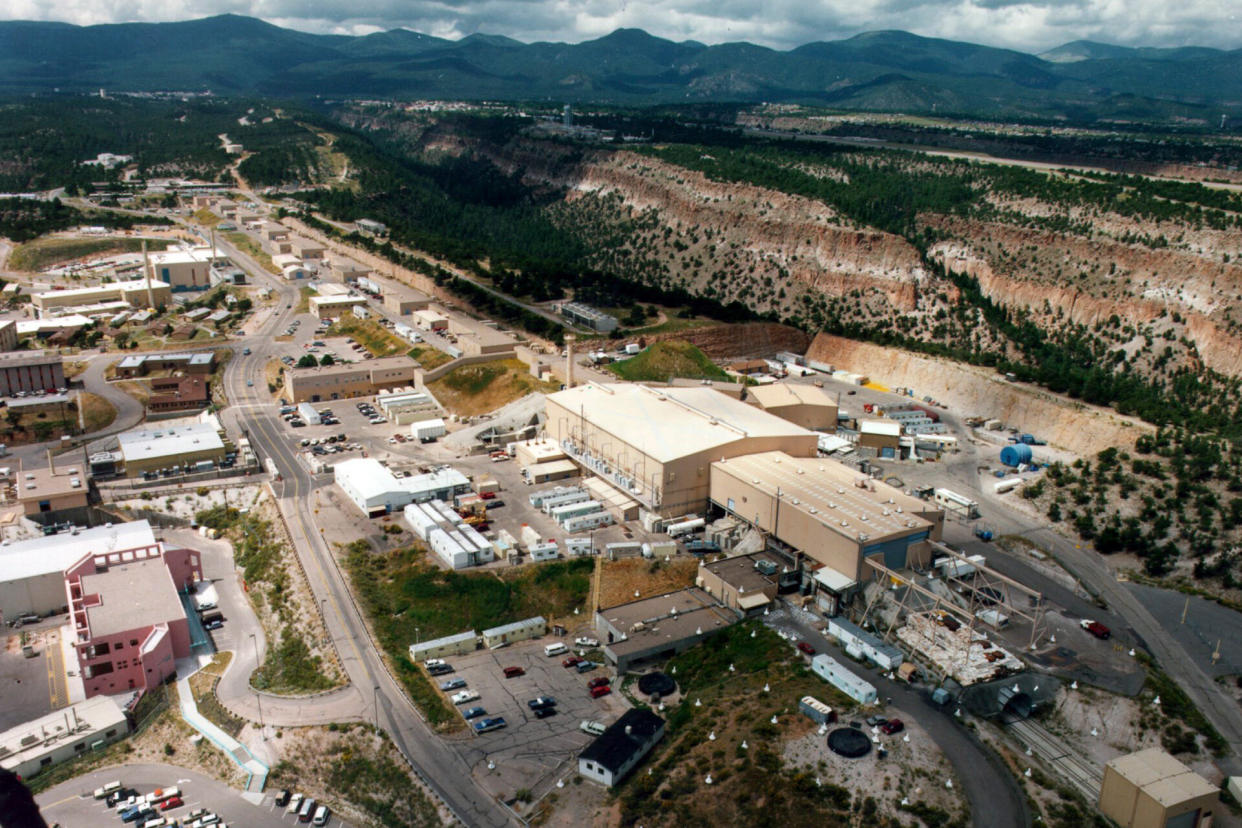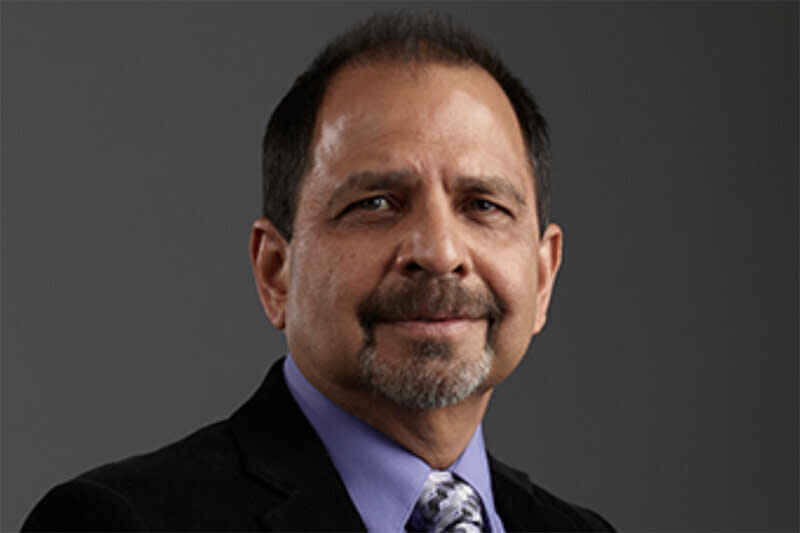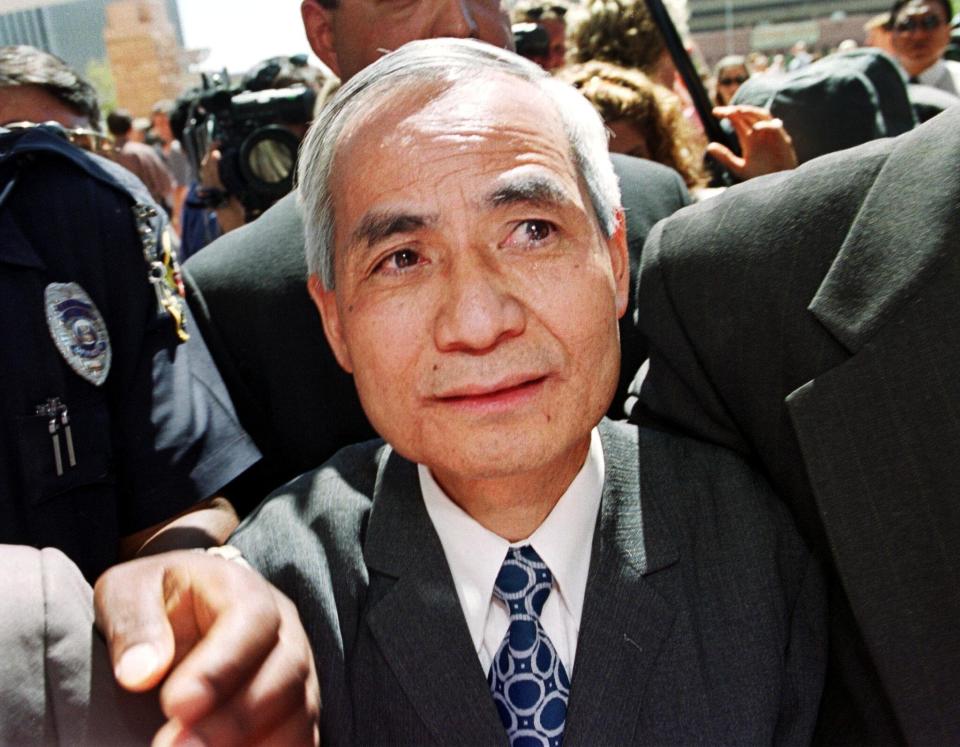Arrest of Los Alamos scientist opens new front in crackdown on Chinese infiltration of U.S. labs

WASHINGTON — The indictment last week of a former researcher at Los Alamos National Laboratory in Santa Fe, N.M., appears to signal a new front in the government’s crackdown on China’s efforts to get access to sensitive U.S. scientific research.
Turab Lookman, 67, a theoretical physicist, was charged with lying on three occasions about his contacts with the Thousand Talents Plan, a Chinese government program aimed at funding and recruiting international experts. He has pleaded not guilty in federal court in Albuquerque.
Lookman was not charged with sharing secrets with the Chinese government, but with lying about research grants he received under the program. The Thousand Talents Plan has become a contentious issue between the U.S. and China owing to its focus on cutting-edge, often dual-use research. Los Alamos Labs, part of the Department of Energy, was where the atom bomb was developed and continues to host ongoing sensitive research on nuclear technology and other areas of national security, making it a prime target for infiltration.
Several previous DOJ cases since then-Attorney General Jeff Sessions announced his China Initiative in November 2018 have focused on intellectual-property theft from the private sector, Chinese state-sponsored hacking and Chinese recruitment of former U.S. intelligence officers. Cracking down on Chinese efforts to obtain information on basic scientific research is another, apparently new part of the initiative.
“The Department of Justice takes all instances of lying to federal officials seriously. It is especially important to do so when an individual lies about his involvement with a program established by the Chinese government to recruit people with access to and knowledge of foreign technology and intellectual property,” said John Demers, assistant attorney general for national security, in a statement emailed to Yahoo News.
“The Department’s China Initiative is squarely focused on protecting America’s economic security against China’s continued malfeasance. All businesses, academic and research institutions must be on the lookout for individuals in their organizations with divided loyalties, whether due to their participation in the Thousand Talents program or otherwise,” he continued.
Paul Linnenburger, Lookman’s attorney from the firm Rothstein Donatelli, told Yahoo News that “Dr. Lookman entered a plea of not guilty and we fully intend to mount a vigorous defense.”

According to online records, Lookman, who specializes in theoretical physics and the discovery of new materials, has been publishing research with co-authors in China at Xi’an Jiaotong University since at least 2012. Several of his co-authors from Xi’an Jiaotong, according to their LinkedIn profiles, are now employed as visiting scholars at Los Alamos Laboratory.
While the Thousand Talents Program was previously understood as being aimed at luring Chinese researchers abroad back home, in recent years it has also supported many non-Chinese scholars in an effort to recruit the world’s best scientific talent and facilitate global knowledge transfers. Lookman, who has a PhD from King’s College, University of London, was born in India.
In the last six months, Chinese authorities have scrubbed many references or pieces of public information about the Thousand Talents Program from the internet amid tensions with the U.S. over trade and national security. But researchers have managed to preserve most pages and keep ongoing dossiers of employed scientists, many at Los Alamos or other U.S. labs, according to lists shared with Yahoo News.
U.S. labs have long been concerned about security and potential conflicts of interest. The Department of Energy published new, stricter internal guidelines on disclosing and, if necessary, terminating sources of foreign funding in February, directly citing news clips about incidents of researchers bringing weapons research to China from Los Alamos.
“The Department of Energy’s world-class National Laboratories have a unique ability to link leaders in America’s scientific and academic communities with the best minds around the world to foster innovation and better understand the world around us,” wrote Department of Energy authors in an internal compliance note. “Unfortunately, some foreign government-sponsored talent recruitment programs have taken advantage of America’s openness to collaboration to infiltrate our labs, steal our technology and use our own resources against us.”
Experts in Chinese espionage told Yahoo News that the indictment, and the pressure campaign from the Department of Justice, was a long time coming.
“This is the U.S. counterintelligence community kicking into gear,” said Peter Mattis, a research fellow in China studies at the Victims of Communism Memorial Foundation and a former intelligence officer focused on China. “In this case, the effort is to cut off China's almost unrestricted access to U.S. labs.”
Bringing national security cases against Americans cooperating with the Chinese government in any capacity is difficult, experts warn, as those ties are tough to prove and the line between collegial cooperation and theft of secrets can be blurred in open academic settings. Finding proof of wrongdoing can be nearly impossible. For example, in the infamous case of Wen Ho Lee, the Taiwanese-born Los Alamos employee accused in the late 1990s of stealing the design for an advanced American nuclear warhead to give to China, the investigation ultimately fell apart when the U.S. failed to provide evidence he had actually stolen anything, despite repeated suspicious foreign connections.

“The false-statement charge is the Capone approach,” said James Mulvenon, co-author of a book titled “Chinese Industrial Espionage” and vice president of the intelligence division of security consulting firm Defense Group — referring to the way the government successfully prosecuted the racketeer Al Capone on tax-evasion charges, rather than his substantive crimes.
“I think he is a warning shot to others,” Mulvenon continued. “As the Chinese would say, ‘Kill the chicken to scare the rooster.’”
Regardless of whether DOJ manages to tie Lookman to a broader Chinese campaign to infiltrate U.S. labs and gather sensitive information, his ongoing case should provoke discussion about academic cooperation with China, said Matt Schrader, a China analyst at the German Marshall Fund’s Alliance for Securing Democracy, a bipartisan think tank focused on countering outside attempts to subvert democratic norms.
"China now has a lot to offer American scientists wanting to do cutting-edge research, which can put them in positions where they might be harming both their careers and U.S. national security,” he wrote in a message to Yahoo News.
“The research and national security communities in the United States really need to be having a better conversation over what kind of collaboration with China is acceptable."
_____
Read more from Yahoo News:
In quest for Gen Z votes, 2020 could be the year of the influencer
How Trump's embrace of a rogue Libyan warlord sparked a humanitarian catastrophe



